An oil worker whose house was bombed in Sudan has fled to safety with his family.
Aberdeen University graduate Mohammed Kadouk survived a mortar attack on his family’s home in Khartoum last month.
His neighbour, a 16-year-old girl, died in the attack.
Mohammed, 42, has worked for Bridge of Don-based engineering firm Saipem UK for 15 years.
He left Aberdeen in mid-March to visit loved ones in Khartoum.
The ROV Supervisor was due to fly back to work on April 17 – but a bloody civil war broke out two days earlier and has since killed several thousand people.
Newborn baby arrived days before conflict began
The conflict forced Mohammed to shelter at his family home in central Khartoum – between the two factions.
To complicate things further, Mohammed’s wife Ethar gave birth to a baby girl, Noor, just days before the conflict began – and they had limited access to baby supplies.
After eight days of hunkering down in the capital, the family took a bus to Port of Sudan and were evacuated on a Royal Navy ship to Saudi Arabia.
Mohammed was born in Cardiff and spent his childhood in Sudan before moving to Edinburgh, where he finished school.
He then studied electronics at Aberdeen University and began working for Saipem UK in 2007.
The dad of two left the firm in 2017 but still works for it via an agency.
‘It was a routine visit – or so I thought’
Mohammed said: “The job offers shift patterns that allow me to return to Sudan.
“I’ve got a small farm there that I’ve been tending for years.
“This was just a routine visit – or so I thought.
“I had been working in Scotland in early March, then did a survival refresher course in Aberdeen, then flew to Sudan.
“The first few days were normal – and I even received an email on April 14 with my flight details for April 17 – but fighting started on April 15.
“In hindsight, it’s good that I wasn’t able to take that flight as it would have been impossible for me to get back to my family in Khartoum.”
Describing the ferocity of the battle, Mohammed said: “I was living very close to the military command where most of the intense fighting was taking place.
‘A bullet killed a girl. She was only 16’.
“A shell hit our house, broke all the windows and made a big dent on the roof and also in my neighbour’s roof.
“A stray bullet went in there and killed a girl, she was only 16.
“All of us were huddled in the middle of the house away from windows and there was no power or water for the first week.
“It was impossible to get supplies.
“We were scared because jails had been opened, places were being robbed and there was total lawlessness – and we didn’t know where missiles were going to land.”
‘It was absolute terror’
A week after fighting began, Mohammed and his family paid £120 each for a bus that took a perilous 19-hour journey to the Port of Sudan.
He said: “It was very scary. There were checkpoints and every guy was questioned.
To see the fear in the faces of the women and the children totally shook me.”
Aberdeen University graduate Mohammed Kadouk
“To see the fear in the faces of the women and the children totally shook me.
“You just didn’t know what these soldiers would do. It was absolute terror.”
After arriving at the port safely, Mohammed found a flat and would ask for information each day about evacuation of Brits – but there was none.
Until one day he got lucky.
“The port is safe, but it was absolute chaos, with many people – foreign nationals – sleeping rough,” said Mohammed.
‘There were military guys – they were so helpful’
He added: “The phone network was really bad so you couldn’t rely on it for hearing from the Consulate.
“One morning I thought ‘British representatives must be somewhere – and probably at a nice hotel, like the Coral’ so I went there – and there were British military guys.
“They were so helpful with everything, including nappies and toys which we were very grateful for. They were great guys.”
After a week at the port, Mohammed and his loved ones left on a Royal Navy ship on Sunday and arrived into Jeddah, Saudi Arabia, on Monday.
He is currently completing paperwork before flying back to Scotland in the coming days.
‘Amazing support from home’
Mohammed said: “I’ve had such amazing support from people in the north-east.
“I’ve had really supportive messages from friends in Peterhead, Ellon, Inverness, and all over Scotland – people I know through work and studying.”
His son Omar, six, was interviewed by CNN when the family arrived in Saudi Arabia.
Omar told the cameras: “I don’t ever want to see Khartoum again because I’m scared that something will happen and I’ll not be able to get out.”
Reflecting on the last few weeks, Mohammed said: “It chokes me up every time I think about what has happened to Sudan.
“It’s pretty raw. My hope is for peace.”
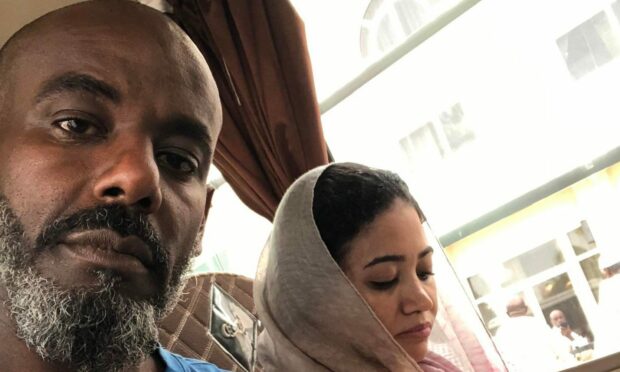

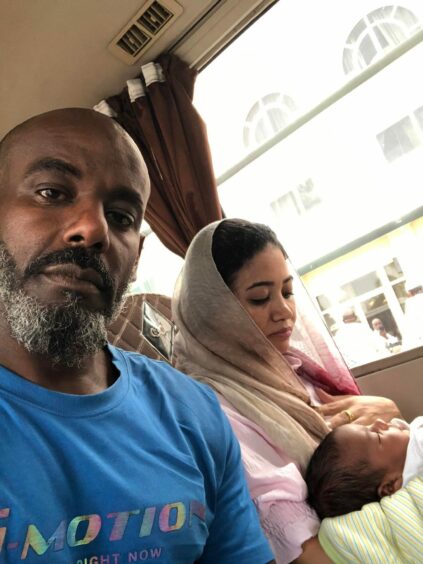
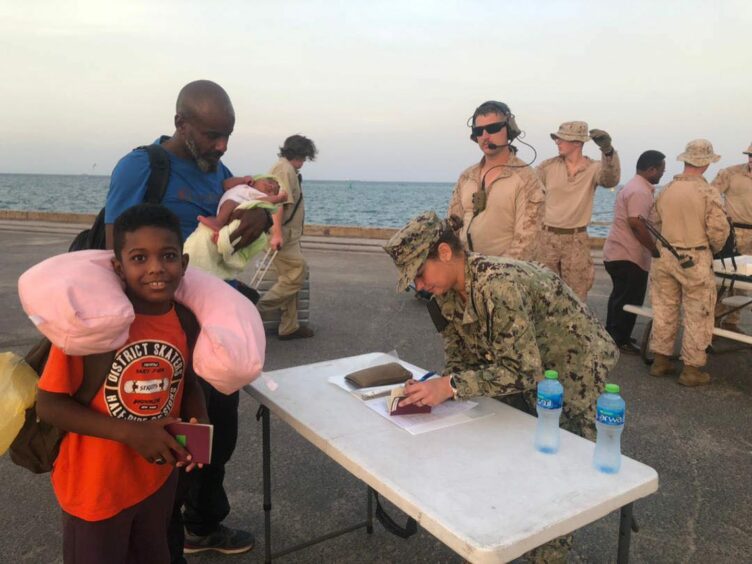
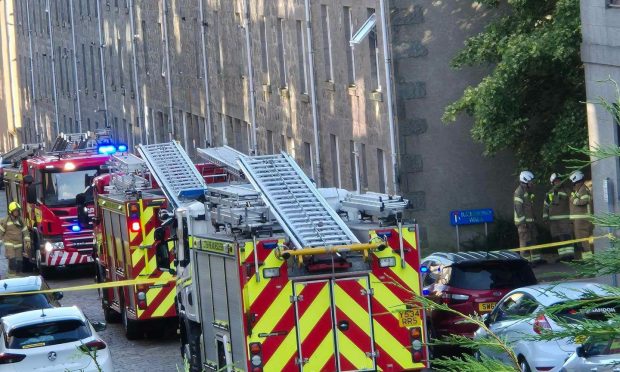
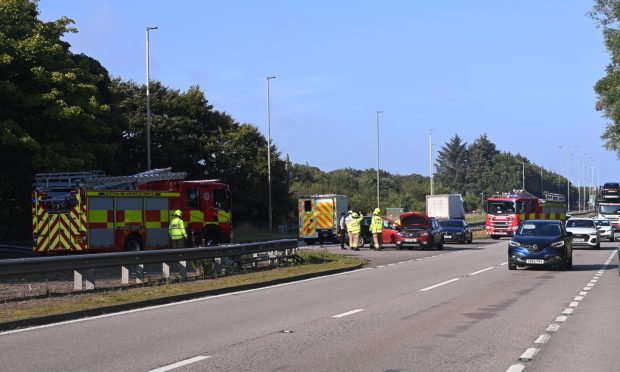
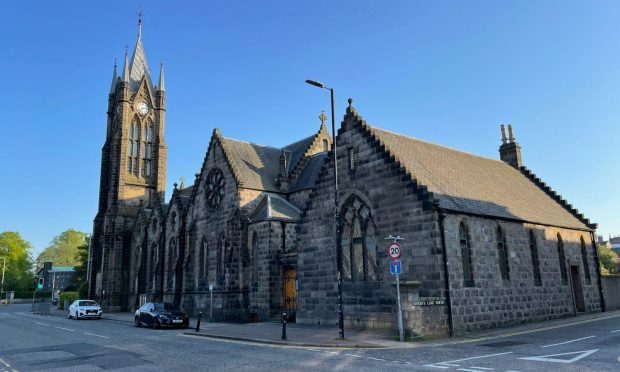
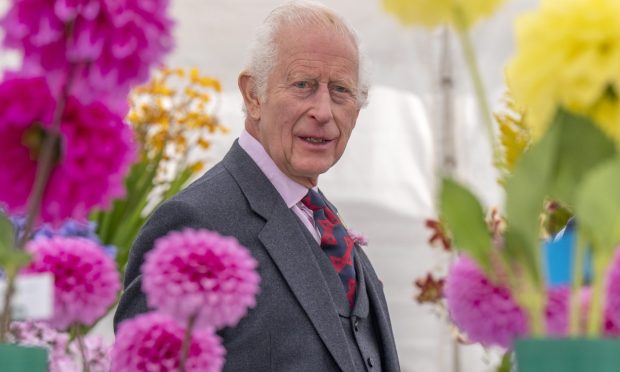
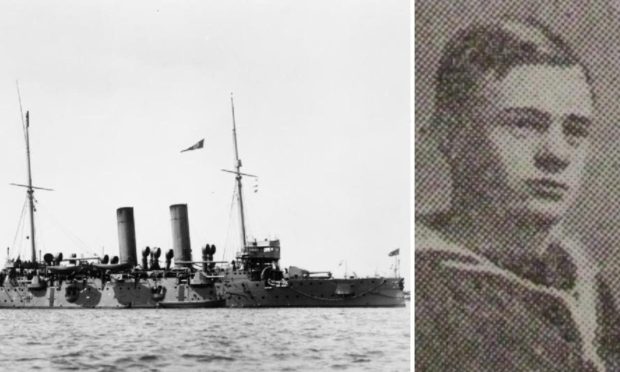
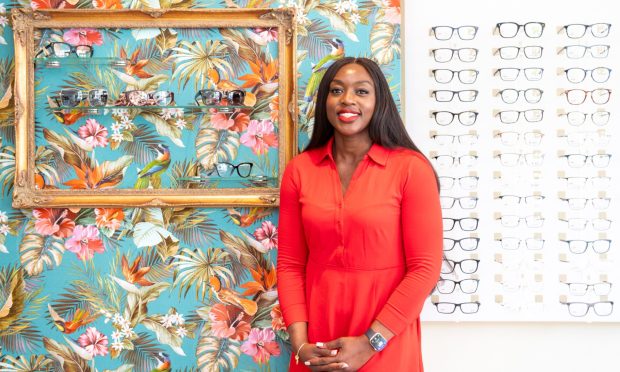
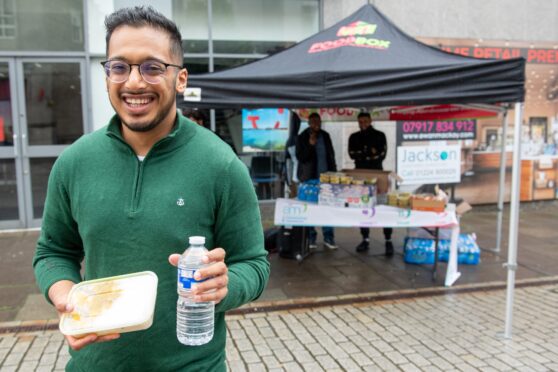
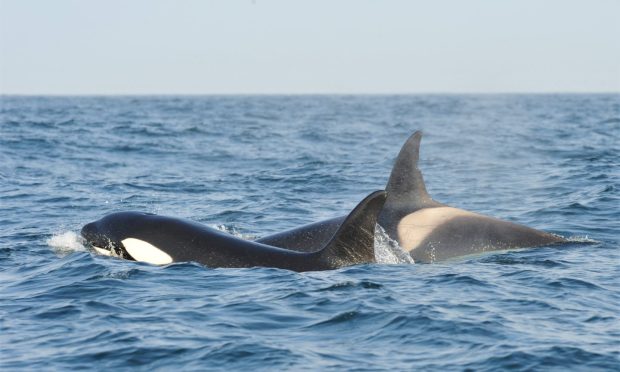
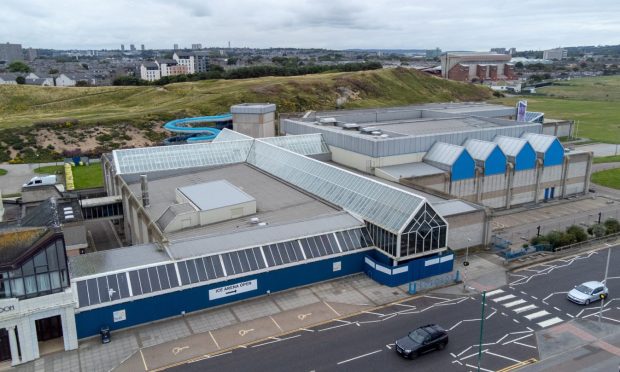
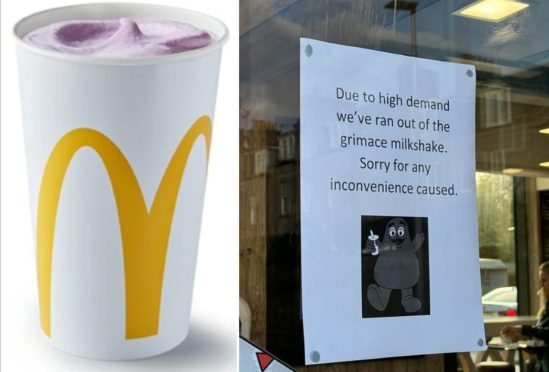
Conversation